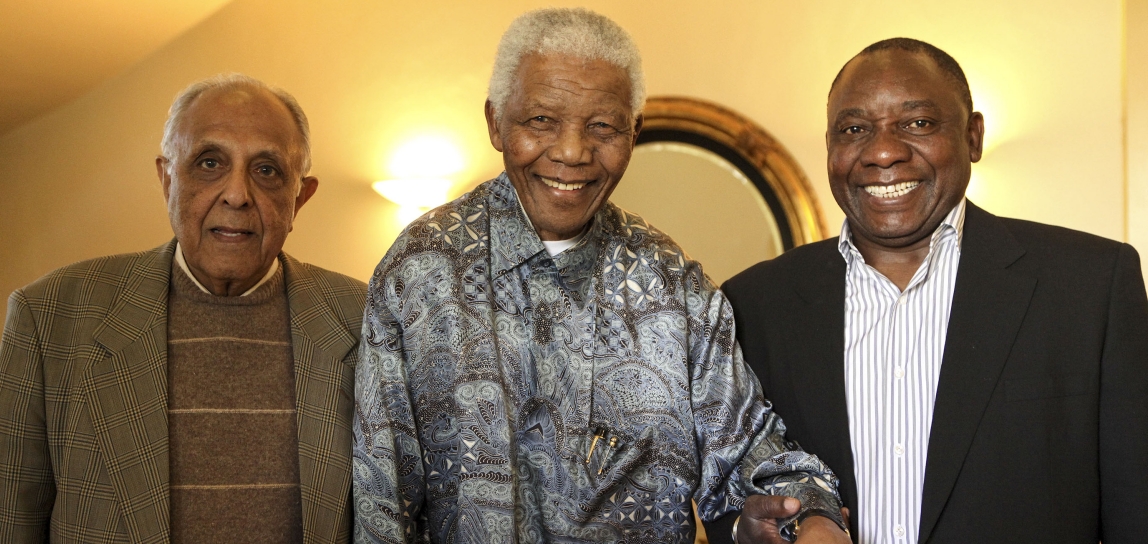With the passing of Ahmed Kathrada, there are now only two surviving Rivonia trialists. The political leaders of old and their principled, people-centred style are gradually becoming a thing of the past. The Daily Vox spoke to senior citizens who experienced the golden age of democratic South Africa emerge.
Ndobzodwa Ndlovu*, 75, retired nurse
We learnt about [Ahmed Kathrada] in books. He fought against apartheid and the oppression of black people. He also helped us get into places where blacks were no longer allowed into. If you remember, back then, there were places for Europeans and non-Europeans, you see.
The old political leaders were concerned about liberating us black people and fighting for our freedom and were not concerned about money, like today’s political leaders. They wanted us to be all equal.
With today’s leaders, I don’t know what they are today. They lack honesty and accountability.
People like Jacob Zuma are being found guilty by the Constitution and with talks of him being taken out of power, I don’t know what the future is now for South Africa.
What I can say is, they [politicians] need to stop putting in people in position because they are friends or family and allocate people to positions because they deserve it.
They [the youth] can learn a lot from the likes of Mandela, Sisulu and OR Tambo when they were young.
Anwar Shaik, 62, Â parking attendant
I only knew about Kathrada later on in life when we were exposed to the new government that was coming to power. I come from the Midlands you see and news was very marginalised those days. We had an Indian station on the radio which was given to the Indians only half an hour every Sunday. In those days we were not allowed to talk about anything regarding freedom fighters. So, very little was said on the radio.
We’re happy, in a way, that Kathrada served us. He created an environment for humans to be treated like humans. I recall, when I was a small boy, I used to go with my dad the shop. He had to go to a small pigeon hole and there he was allowed to buy.
Those were dedicated [freedom fighters], they were there for the people. The youth of today are not on par with them. I’ve been told, â€You must go back to your country,†and that is hurtful. I come from a rural area and I was raised with blacks. My late mother, peace be upon her, actually used to help deliver black children, bathed them, teach the mummies how to breastfeed the children, and my mother was worshipped in the township in Richmond in Natal. To be told that is very, very painful.
Sandy Whitaker, 60, retired/housewife
Kathrada was one of the people in the struggle that went to jail. He was with Mr Mandela and all of them, and he was in the Rivonia trial. I knew he was going to die because he was old and very sick. It’s very sad.
My family weren’t very politically inclined. But when I got 702 [radio station], I learnt everything. I’ve always been interested in them. He was a very nice soft-spoken man. He was important in his own right. He was always in the background. He didn’t take the lead. He supported others.
I don’t know what will happen [politically] but I’ve got to remember that Jesus is in control. It’s difficult not to get apprehensive. There’s no personal integrity. I wish the youth would learn [that when] you’ve given me a job, I will do it honestly. I don’t think the older ones understand it either.
Even he [Kathrada] asked Jacob Zuma to step down. I mean when Mr Mandela came out he had such high principles for everybody and he lived them too. He lived them. If you asked [politicians] if they love him, of course, they’ll say they love him but they don’t want to be like him.
Elderly South Africans are worried that government no longer cares for ordinary citizens. They see no politicians that uphold the virtues of an idealistic democracy. Is the death of the beloved Uncle Kathy the beginning of the end for these virtues? Or will emerging youth activists return to a style of leadership that is grounded in service to others?
*Name has been changed.
Voxes have been edited for brevity and clarity
Featured image courtesy of the Ahmed Kathrada Foundation










